This month, we'd like to introduce you to actress and singer Sophie Accaoui and her show "Dieu, Darwin, Marcel et moi" (God, Darwin, Marcel and me).
Freely inspired by Professor Marcel Bouché's book "Des vers de terre et des hommes" (Earthworms and men), this lecture, musical and dance piece plunges us without batting an eyelid into the incredible meanders of the life cycle of the soil and our little friends! Sophie Accaoui talks to us about geodrilology! What's that? The science of worms!
We hope this article will inspire you to discover the fabulous work of worms in ways other than in your City worms! Currently on tour in Paris at the Comédie Nation until December 14, you can certainly go and see Sophie Accaoui's play near you in 2019!
Ready, set, go!
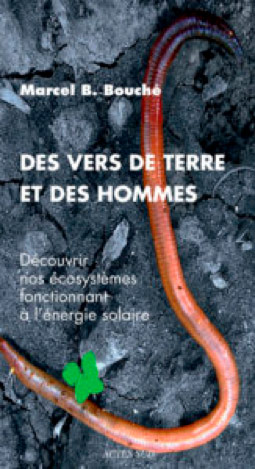
Hello Sophie, and thank you so much for answering our questions!
Why did you write a play about earthworms?
It's because of my worm compost bin! (Laughs) A worms café offered by friends, bought at Vers La Terre. The gift made my day. I'm a member of an AMAP and, of course, I cook a lot of vegetables. But throwing my peelings in the garbage can was upsetting me.
So the vermicomposter became a must. It reduces my rubbish and feeds the plants on my balcony thanks to the fertilizer it produces. All thanks to the work of the worms. It's simple, rewarding and useful. It's eco-logical!
Watching my earthworms, I realized that their poo was humus! Living in the city, I didn't understand much about the soil life cycle, and I had no idea of the invisible work worms do under our feet. My encounter with them totally changed my vision of the world. It was a great upheaval. Soil life started with worm poo!
At the time, I was looking for a subject for a new show. I found inexhaustible material to explore!
Tell me about your meeting with Marcel Bouché and his book "Des Vers de terre et des Hommes"
More than an encounter, it was love at first sight!
At the time, I was researching everything I could about earthworms for my show. Then, one morning on the radio, I heard agronomist Marcel Bouché talking about his book "Des Vers et des Hommes".
Enthused, I ran to my local bookshop to buy it. You'll laugh, but without my even asking, she had ordered a copy for me! As soon as I received it, I devoured it. It's 2014 and the start of a great adventure!
Most of your play "God, Darwin, Marcel and Me" is based on this work. Would you call it an adaptation? What in the book contributed most to your work?
The play is inspired by Marcel Bouché's book and its author!
Des Vers de terre et des Hommes is a scientific work impossible to transpose to the stage. So I had to find a way of talking about it, but in a way that wasn't theoretical.
This book stayed with me for several weeks. I annotated it to try and retain the essential points, and it was barely 3 months after reading it that I met Marcel.
In addition to his scientific work, it was his anecdotes and personality that inspired me most. Marcel is an endearing old man, a sort of Professor Tournesol, and the real hero of the play.
It's worth remembering the absurd mission he was given by INRA in 1962: to count the earthworms in the soil! For 40 years, he dug holes all over France. He counted 70 species. He founded geodrilology: the study of earthworms in the soil.
He established 3 categories of earthworms: the epigeous, which are the small surface worms found in our vermicomposters; the mysterious endogeous, which remain hidden in the soil. And last but not least, the anechoic worms, which make up 80% of all earthworms, including the earthworm. These are the worms that move up and down in the soil. They help irrigate and aerate the soil. They consolidate it and even better: by mixing surface humus with mineral dust from the subsoil, they create the clay-humus complex, the soil where everything grows.
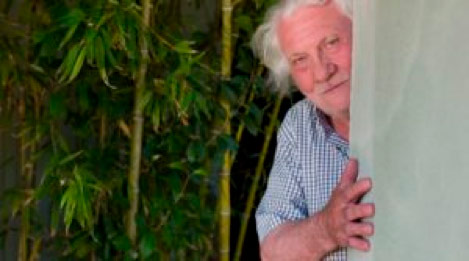
One imagines that Marcel Bouché came to see the play!
Yes, of course, several times! And each time, he tells me a new story that I incorporate into the show. The latest was this summer. Russian researchers named a worm after him: Lombricus Bouchei.
Thanks to Marcel and his research work, the worm is finally seen as an indispensable link in the cycle of life. In a way, my piece is a tribute to him.
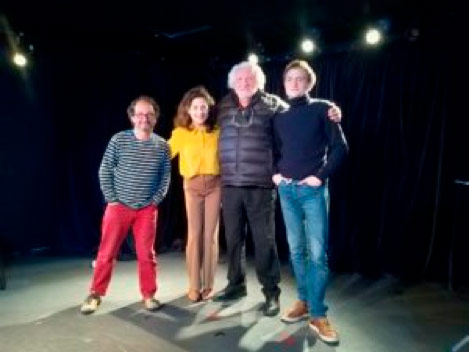
And what about Charles Darwin?
I knew nothing of Darwin's passion for earthworms. A philosopher friend of mine told me about his book "On the Formation of Vegetable mould through the action of Worms".
It can be found in French on the Bibliothèque Nationale de Paris website. This book is one of the very first serious works on earthworms.
Darwin experimented with them. First in the flowerpots on his desk: the worms would poke out their little heads at night by candlelight. For 30 years, he observed the worms in a meadow, always the same one. He meticulously described their anatomy and calculated that it takes 30 years of turricules (surface droppings) to create 15 cm of new soil.
Famous for his theory of evolution, Darwin scientifically challenged the place of God as creator. At the time, it got him into a lot of trouble..
Today, I feel there's a certain return to obscurantism, and that scares me. I even included Darwin in the show's title, because his work is part of the history of knowledge. For me, he's essential!
What would you call your show: a course, a lecture, a play, a gesticulated conference?
Good question! Well, it depends on who I'm talking to. To scientists, I say it's "an earthworm fantasy", to teachers, "a scientific popularization" and to friends who don't know anything about it, "a completely zany show with singing, drums, poetry and humor". Sometimes I add "fundamental poop".
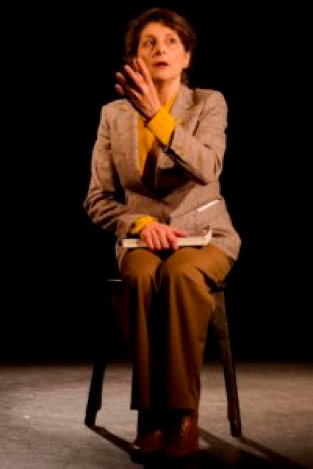
How did you go about it?
There were several stages. There was the writing stage, which took quite a long time, and the text was constantly refined. Then I proposed a solo a capella performance. It was trashy, but with too much information for the uninitiated.
Then I wanted to integrate music into the show. I called on Augustin Mantelet, a jazz drummer. We created a 100% musical version as a duo. He created a sound setting that was telluric, fantastic and disquieting. It was great, but my text wasn't really accessible.
To make a show for the general public, I had to get away from the scientific discourse.
So I called on Laurent Lévy, director and playwright. Thanks to his subtle eye and sense of humor, he took it all in and suggested I improvise a gallery of characters: a slightly bourgeois lecturer who leads the debate, Marcel Bouché, the guest specialist who recounts his brilliant discoveries, a dancer who interprets the body of the earthworm, a pop singer who sets the pace and Francis, the trainee, who gets bored... sometimes things get out of hand and surprises spring up.
You performed in front of composting and vermicomposting professionals, master composters. How did they react to your show?
They're very amused, because I'm not a scientist, so my approach is both candid and sensory.
Thanks to the play of light, theater allows us to show living matter such as soil or organic waste. I'm sure that master composters have always dreamt of knowing what was going on under their feet!
The tone of the show is joyful. Its aim is to fill people with wonder, to pass on information and help them adopt a more civic-minded attitude to waste, such as worm composting.
This year, we played for the green spaces department of the town of Bagnolet, as well as for the 10th anniversary of the Martin brothers' Au ras du sol association, which does a lot of composting education work in the Dordogne. We've also played at the Marciac agroforestry festival, at a university that teaches ecology in Montbéliard and, I hope, soon at a horticultural high school in Paris... and when will that be a chamber of agriculture?
You created your show in Paris, a city where over 2,000 city worm composters have been distributed in less than a year. How does your show resonate with this action?
We are all fighting, citizens and elected representatives alike, against the problem of household waste being burnt in incinerators, which pollute the atmosphere.
Vermicomposting is fun, effective and part of the great cycle of life. My show aims to raise public awareness of the need to respect this cycle. My work is complementary to that initiated by master composters.
I attended one of Thierry Sin's sessions, and this guy is a genius, a pedagogue and a laugh - hats off to him! Of course, these are serious times, but I prefer communicative enthusiasm to paralyzing terror.
Is your artistic work driven by a civic commitment? Does your play reflect this?
Yes, for me it's essential. If my interest in the role of worms in the soil is contagious, I'm delighted! It's by being informed that, together, we can move forward more quickly. It's also with this desire to pass on that I asked my son to accompany me on drums, and his character is called... Francis, like Darwin's son!
Do you have a funny or atypical anecdote to tell us about your show, especially for our readers?
What touches me most is to see the attention my friends pay to earthworms after seeing my show! There's a real awareness of the incredible role played by these little creatures. Wow!
I'll let you in on a secret: I dream of using the toilets in a house in Montreuil that runs on earthworms! I'm intrigued, because it wouldn't be a dry toilet... a new experience!
Thanks to Sophie Accaoui for her answers, her good humor and her infectious earthworm passion!
Find out about upcoming dates for Dieu, Darwin, Marcel et moi here.
The show's website and artistic dossier
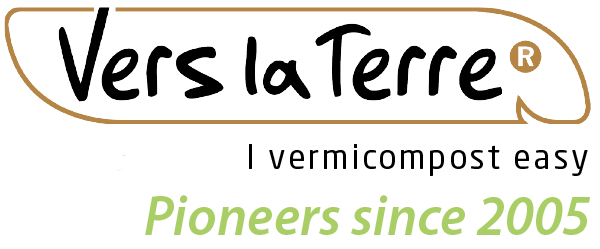
Comments (0)